Danyal Hussein: A teenage murderer with far-right links
- Published
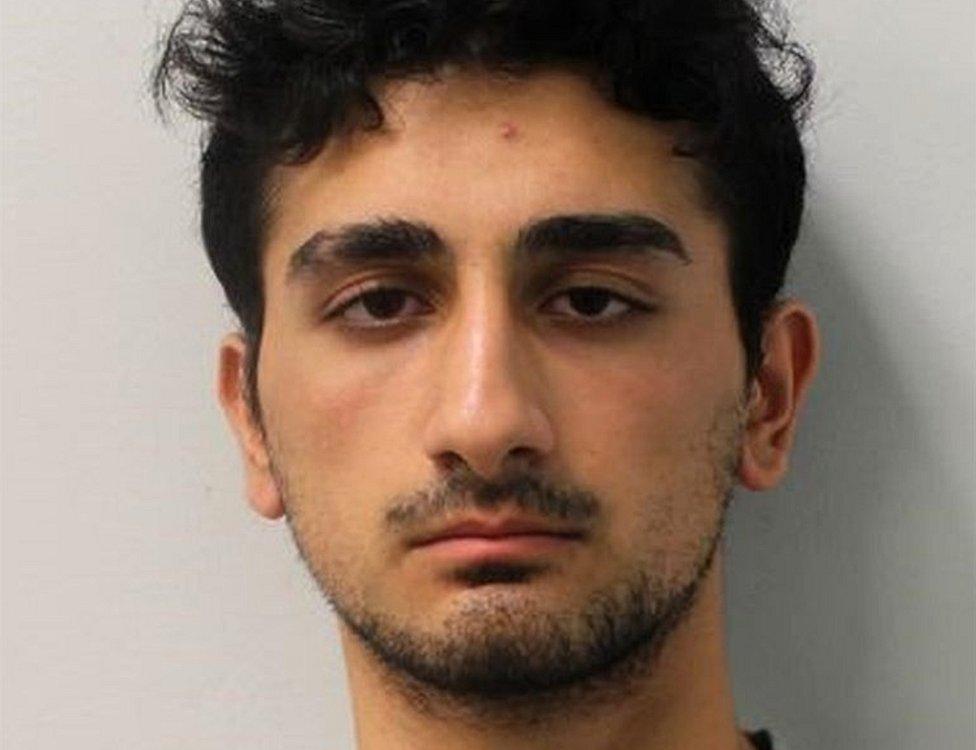
Danyal Hussein promised to "sacrifice" women in exchange for winning the lottery
Danyal Hussein had just turned 18 when he launched a ferocious knife attack on strangers Bibaa Henry and Nicole Smallman as the sisters celebrated Ms Henry's 46th birthday last summer. What prompted the teenager to commit such a horrific crime?
Shortly after 01:00 BST on 1 July 2020 armed police smashed the door of an inconspicuous family home in a quiet cul-de-sac in Blackheath, south-east London.
Inside they found a contract that Hussein, now 19, believed he had drawn up with a demon.
In large, childish handwriting, he promised to "perform a minimum of six sacrifices every six months for as long as I am free and physically capable".
The agreement was headed, "for the mighty king Lucifuge Rofocale" who, according to some Satanic cults, is the demon in charge of hell's government and treasury.
In exchange Hussein would win the Mega Millions Super Jackpot and "receive fruitful rewards" including "wealth and power".
At the bottom Hussein had signed his forename in his own blood. There was a space - left unsigned - for the demon to leave his mark.
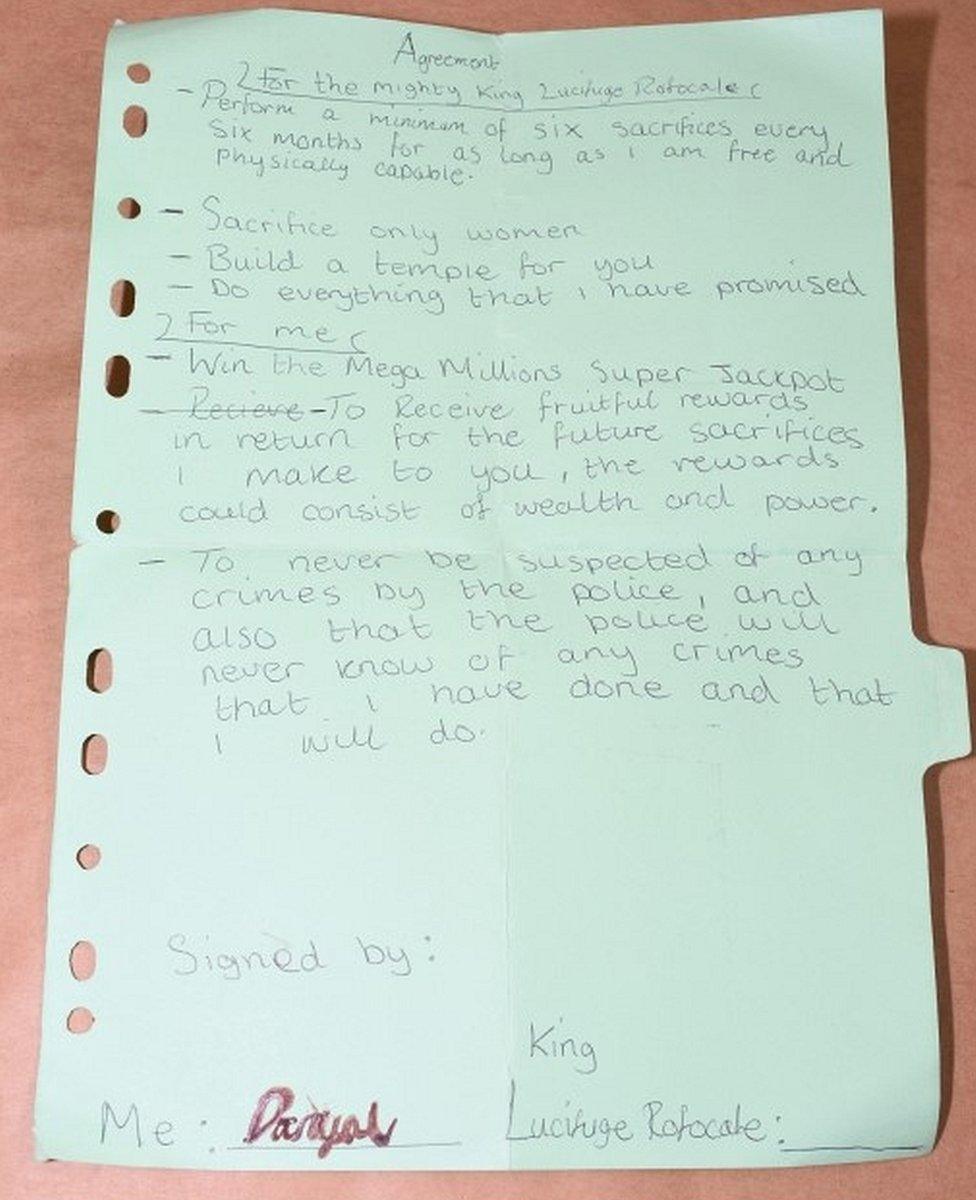
Hussein signed his forename on the note in blood
Hussein grew up in Blackheath as the eldest of four siblings.
Before the murders, he was at Thomas Tallis school and studied A-levels at Orpington College - although he rarely attended.
Neighbours said his parents split up when Hussein was in his early teens. Before then, they said it was a noisy household with a lot of "screaming and shouting".
"I know they had the police called and the ambulance came two or three times," one neighbour, who asked not to be named, told the BBC.
Hussein was a "loner" who would regularly "wander off". His father, Kamal Hussein, had been worried his son had "got into the wrong crowd", another neighbour said.
"He said he worried about Danyal because he was being led in the wrong direction."
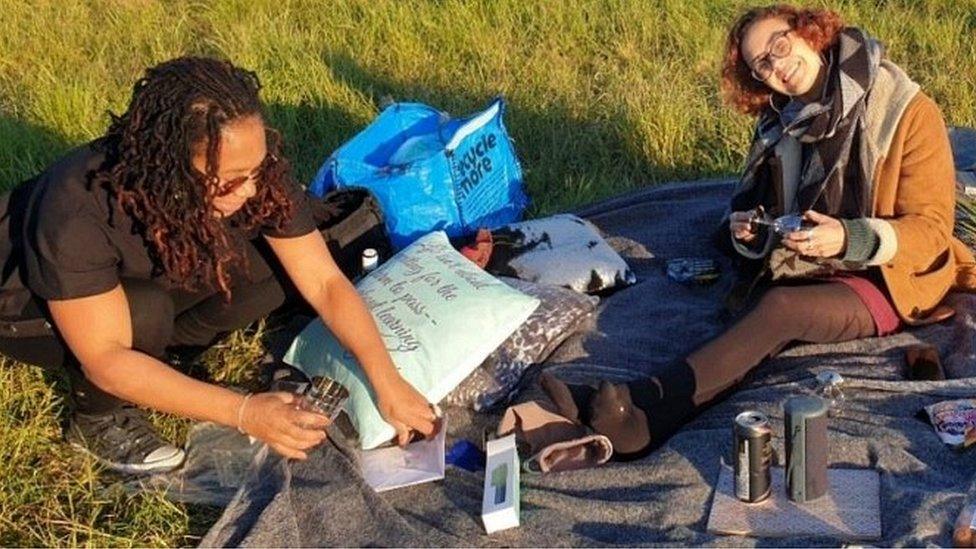
Bibaa Henry (left) had been celebrating her 46th birthday with her sister Nicole Smallman when they were killed
It is unclear exactly what Hussein's father meant. But in October 2017 Danyal, then aged 15, was referred to the government's counter-extremism programme, Prevent. The referral from Thomas Tallis school related to material he had accessed on school computers, including far-right propaganda.
He was considered a person of concern and appeared in front of a Channel panel, for individuals at risk of being drawn into terrorism.
Hussein was discharged from the programme in May 2018 but it seems the influence of extremist ideology still had a hold.
After his arrest, police searched his tablet computer and laptop. As well as his use of forums discussing spells and potions linked to Satanic ideology, officers also found that Hussein had spent time researching the far right.
He apparently considered himself an Aryan.

Satanism and the far right
Analysis by Daniel De Simone, BBC home affairs
There is a crossover between elements of the extreme right wing and certain forms of Satanism and the occult, meaning Danyal Hussein's ideological journey is perhaps less unusual than it might seem.
Misogyny is also a common theme of this world, generating a deeply toxic blend of beliefs.
Since 2019, six young men - five of them teenagers - have been convicted of extreme right-wing terrorism offences connected to a violent form of Satanism. Two neo-Nazi groups recently banned as terrorist organisations have promoted the ideology.
One boy, who was convicted in 2019 of planning a terrorist attack, had written of hunting for women in a forest, in a disturbing echo of Hussein's crimes.
Some people start with a far-right ideology, explore the extreme right, and wind up - typically via the culture of certain online spaces - influenced by cruel and violent occult ideas, encouraging the very worst of human nature.

In Hussein's bedroom, near the contract with Lucifuge Rofocale, police found another handwritten letter pledging to "offer some blood" in exchange for making a girl at his school "fall deeply in love with me".
The note, addressed to Queen Byleth and signed "Danyal", asked that this girl would "believe and see that I am the only one for her" and that he would be "more attractive to women romantically".
In exchange, he promised to "burn insense [sic] in your name, offer some sweet drink, offer chocolate" and "offer some blood".
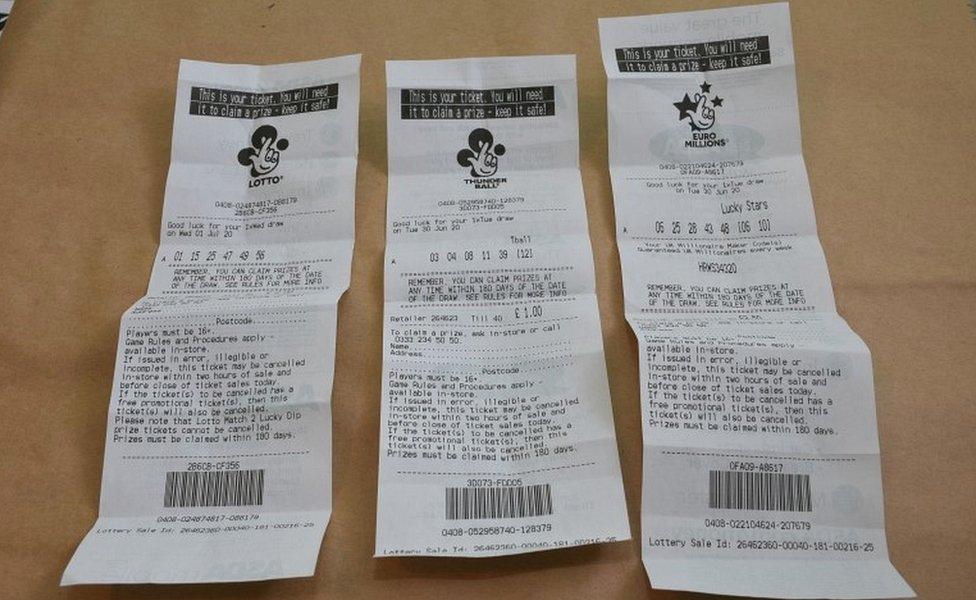
Police found lottery tickets in Hussein's bedroom
Det Ch Insp Simon Harding, who led the investigation, said the two handwritten letters offered a motive for a "shocking crime". He described Hussein as a "very, very dangerous and evil person".
"I strongly believe he would have carried on killing," he told the BBC.
"The level of violence and savagery that Danyal Hussein showed in that morning, in the pitch black, really doesn't bear thinking about. It brings shivers down your spine."
What prevented Hussein from attacking more women that night was a deep cut to his right hand sustained during the savage attack on Ms Henry and Ms Smallman.
It was that cut, and the DNA left on the scene, that helped police to trace him.
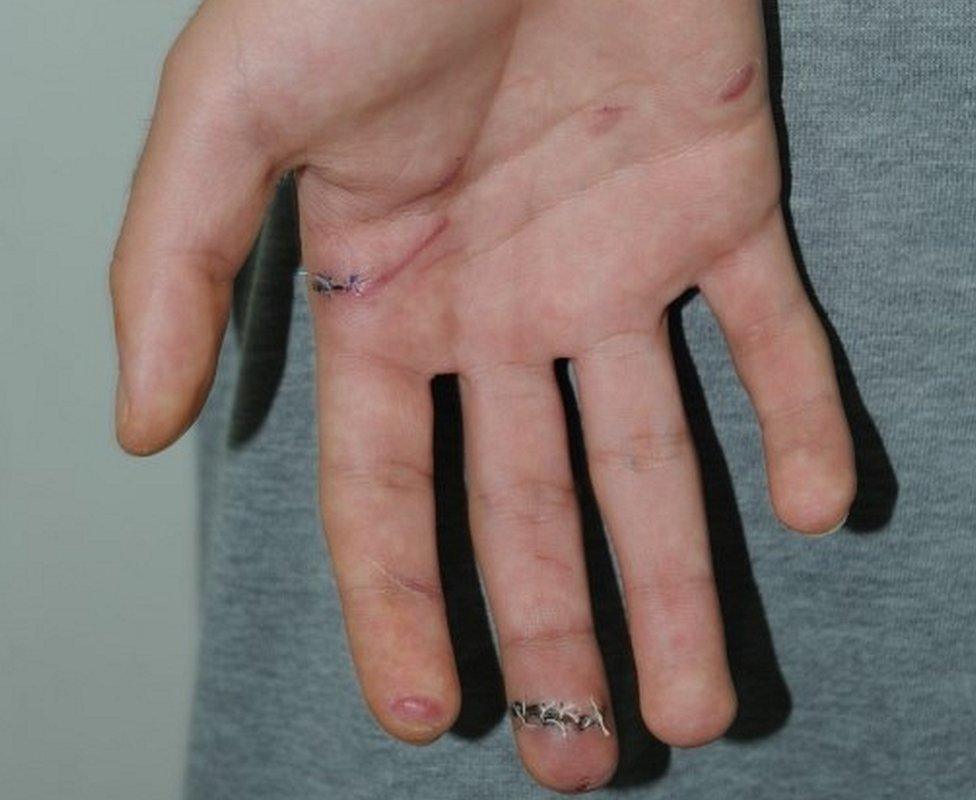
The 19-year-old required stitches after he suffered deep cuts to his hand during the attack
The raid on Hussein's home came almost a month after the bodies of the sisters were discovered intertwined, as if laid out as a sacrifice, in the undergrowth of Fryent Country Park in Wembley, north-west London.
A large quantity of male DNA was found at the scene that did not belong to either of the victims.
Twenty-three days after the murders - on 30 June - a familial DNA link was found on a police database.
That DNA - until then labelled "Unknown One" - was quickly linked to Danyal Hussein. The raid on his home happened hours later, early on 1 July.
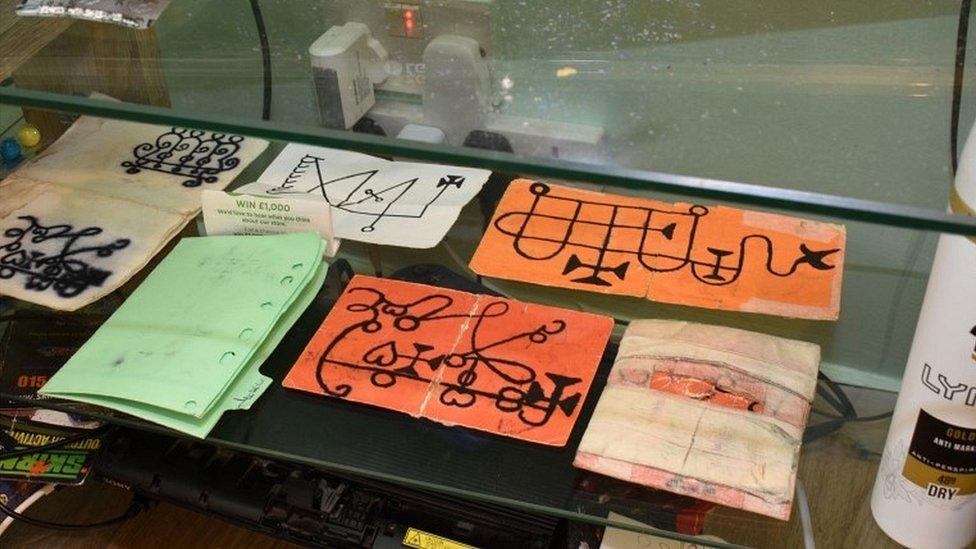
Occult symbols were found in Hussein's bedroom
There is no evidence that police have seen that suggests anyone else was involved in the crime. Hussein did spend a lot of time on the so-called dark web but he has not co-operated with investigators in enabling them to gain access to his iPad.
Det Ch Insp Harding said his officers had not been able to see who Hussein had spoken to.
"If Danyal Hussein is in contact with somebody of a like-minded nature, we want to be able to find out who he's talking to, find out if anybody is encouraging people to do this sort of thing," he said.
"I think it's incredibly frustrating to run a murder inquiry with your hands tied behind your back in that way."
However, he said that it appeared Hussein was self-motivated.
"We haven't seen anybody else have an influence on Danyal Hussein," Det Ch Insp Harding said. "He was the one that made that contract that he signed in his own blood. And he went out there alone and killed those two women."
But police admit that without help from either tech companies or Hussein himself, they cannot be sure if they have the full story.
- Published30 June 2021
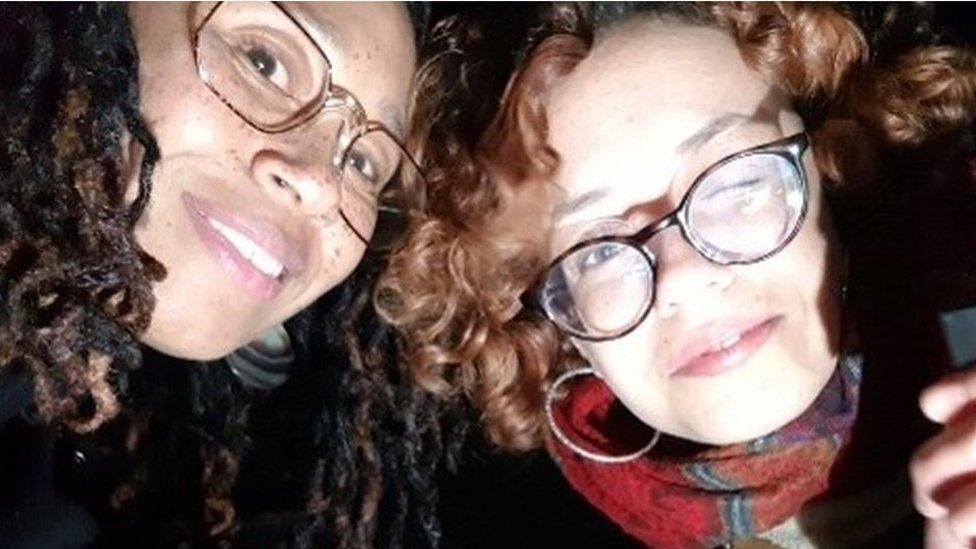
- Published29 June 2021

- Published28 June 2021

- Published10 June 2021
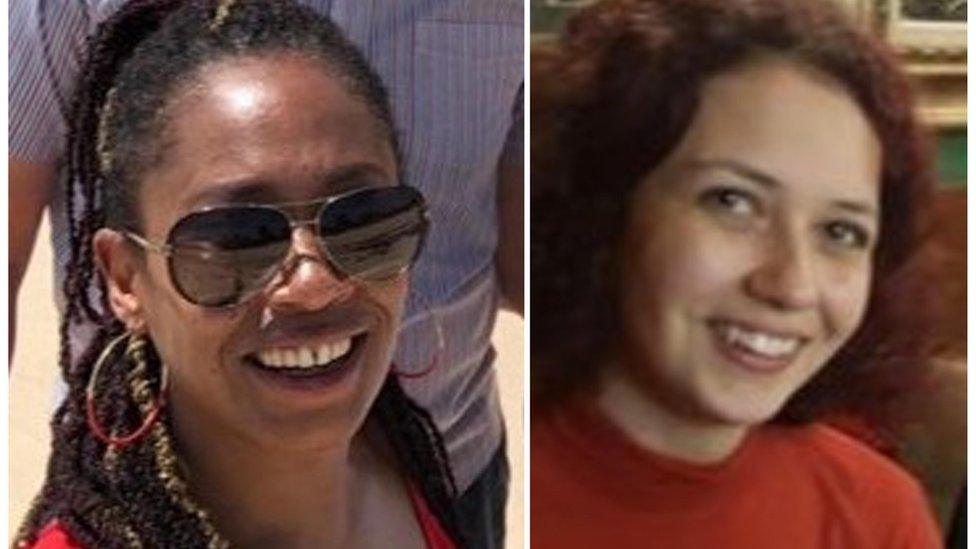
- Published9 June 2021
